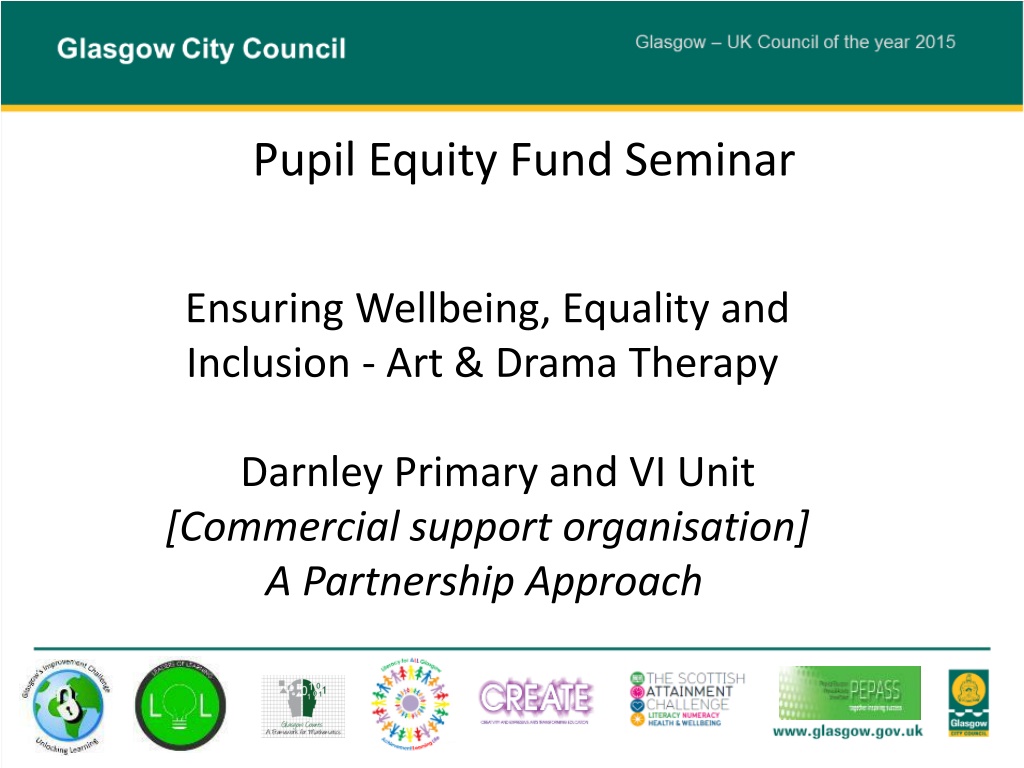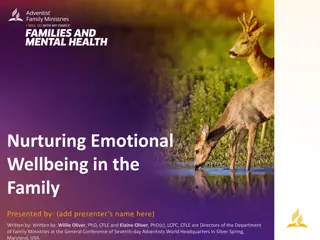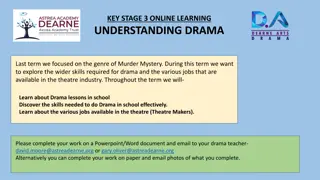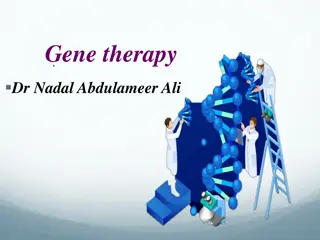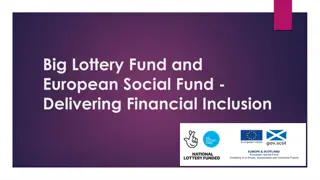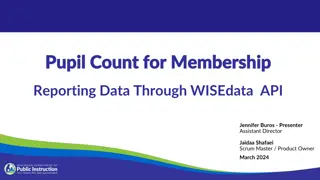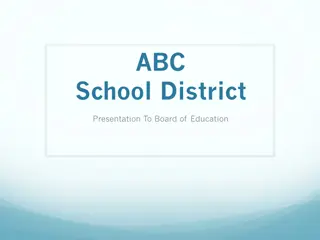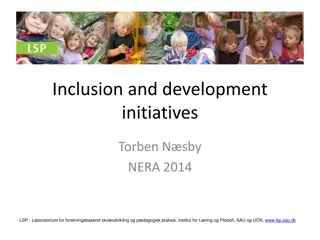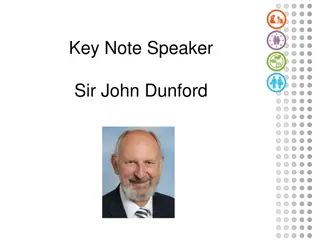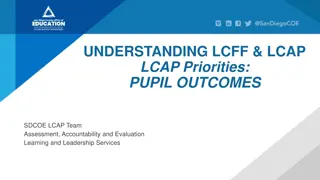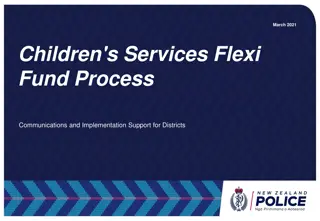Pupil Equity Fund Seminar: Wellbeing, Equality & Inclusion Through Art & Drama Therapy
This seminar focuses on ensuring wellbeing, equality, and inclusion at Darnley Primary and VI Unit through art and drama therapy. It highlights partnership approaches, interventions, strategic improvement targets, and actions for change to support children and families. The goal is to enhance resilience, emotional regulation, engagement, and support for vulnerable families, ultimately improving overall school dynamics.
Download Presentation

Please find below an Image/Link to download the presentation.
The content on the website is provided AS IS for your information and personal use only. It may not be sold, licensed, or shared on other websites without obtaining consent from the author. Download presentation by click this link. If you encounter any issues during the download, it is possible that the publisher has removed the file from their server.
E N D
Presentation Transcript
Pupil Equity Fund Seminar Ensuring Wellbeing, Equality and Inclusion - Art & Drama Therapy Darnley Primary and VI Unit [Commercial support organisation] A Partnership Approach
Seminar Format Context Emma McGill HT Partnership working - Lynne McDonald DHT [Commercial support organisation] Lindsey Paterson Play Therapist Next steps Lynne McDonald DHT
Identification of Interventions Clear areas of need required Literacy Emotional regulation embedded in our curriculum Partnerships to support children and their families well being
Strategic Improvement Targets 1: To identify processes, classroom practices and organisations that avoid the creation of attainment gaps in core curricular areas. Year 1 Theme: focus on Writing 2: To develop a progressive, whole school approach to creativity with a focus on curiosity, applying creativity, problem-solving, imagination and open-mindedness. Year 1 Theme: focus on play, creativity and problem solving 3: To address barriers to success linked to a child and their family s health and wellbeing Year 1 Theme : Partnership working supporting family learning and a whole school emotional literacy programme.
Action for Change To address barriers to success linked to a child and their family s health and wellbeing
Best outcomes Children develop greater resilience and improved emotional regulation Children are more motivated and engaged in H& WB Most vulnerable families feel well supported and these children are more engaged in their learning. Improved attendance & latecoming Less conflict during less structured periods of the day Reduced exclusions Increase in children in positive learning stances Increased staff ability in delivering and implementing Emotion Works, plan across the curriculum and working with partner agencies to support improved provision to children Staff confidence and capability high in attachment theory and Nurture principles High quality provision from partner agencies Decrease in children in the negative Motivated School Learning stances. Resources and CLPL in place to support initiative Act to enhance Pupil support carried on at times of transition Family support carried on at times of transition Increase suite of partner agencies to include support at holidays and weekends Parents are involved in running aspects of HWB and supporting others. Regular forums in Darnley to share strategies and good practice in supporting children and their families Track number of children in SIMD 1 and 2 involved in pupil voice activities SIMD I and 2 children proportionately represented at CU graduations 30 % Increase in number of SIMD 1 & 2 children in positive learning stances All staff confident in the delivery of Emotion Worksand nurturing approaches. Start action in these areas: Look to extend provision outwith school day Track wider achievement of SIMD 1 and 2 children Increase opportunities to for SIMD 1 and 2 children to complete CU Bronze award Increase involvement in parents supporting parents Implement regular forums in Darnley to share strategies and good practice in supporting children and their families develop parental engagement prog Develop multi- faceted parental engagement calendar CPD training for all staff to build capacity Increase support for vulnerable families. Baseline school in terms of Nurture principles, Learning Stances and Learners Needs questionnaire Further develop robust attendance and latecoming procedures Create appropriate HWB school displays Attendance increases to 97% Must do: Identify key staff to Worst outcomes Families disengage with the school. Our most vulnerable children do not respond to the enhanced supports within the school. Attendance and latecoming do not improve Exclusions rise More parental complaints about conduct in the school Increase in violence and aggression incidents Emotion works may be too advanced for some pupils. Low staff confidence in implementing Emotion Works Limited staff understanding of attachment theory and the principles of Nurture No resources to support the programmes Partner agencies don t deliver the quality of programme /interventions required. Increase in children in the negative Motivated School Learning stances. Act to recover Communicate clearly with parents aim of interventions Develop varied progamme for parental engagement Audit what support parents want for their children CLPL for all staff in Emotion Works and continued support. CLPL on attachment theory and the principles of Nurture Evaluate impact of CLPL Audit staff for resources required Share vision with partner agencies Ensure referral process is robust Reduction by 20% the number of children in SIMD 1 and 2 in negative stances Some staff confident in the delivery of Emotion Worksand nurturing approaches. Attendance drops to 94%
What impact were we hoping for? Data Observations Views
Why [Commercial support organisation]? Partnership Working
Our Model for Intervention Staff Training Whole staff - Support for Learning Workers Play Therapist One day per week in school (P1 and P4) Quarriers P5-7 focus groups and transition work
Identifying Targeted Pupils P4 year group Individual Play Therapy - Social Skills groups P1 year group Individual Play Therapy
Who are we? [Commercial support organisation] is a community based mental health charity quietly operating for the last 10 years in the east end of Glasgow, South West Edinburgh and West Lothian. In 2016/2017 we received 400 referrals from our core group of 28 partner nursery and primary schools, social work and CAMHS. We provide a professional psychotherapeutic support for children aged 3 to 11 who are experiencing ACEs. In our experience the earlier a therapeutic intervention is accessed the lower the risk of children developing mental health issues and improving their life chances through learning.
Parent and child relationship Aim to support and respect the parent child relationship Acknowledging the importance of this primary relationship Accepting and being realistic about possible limitations Recognising our role in this relationship Maintaining a professional role with appropriate boundaries
Benefits and outcomes in 2016/17 Over 70% of children we work with are at risk of developing mental health difficulties in adulthood. Based on our SDQ results for 2016/2017 early intervention through play therapy showed a 72% improvement across categories such as emotional, processing, peer relationships, conduct and hyperactive behaviours. 243 adults and 542 children were supported via our family community work.
What is Play Therapy? The therapist offers a child an opportunity to build a relationship based on honesty, trust and acceptance within agreed boundaries. The child chooses what to do within the room and works at their own pace within an agreed time limit. The child is free to explore their thoughts, feelings and experiences through different modalities of play without answering questions or a need to explain themselves.
The use of play helps to: To reduce the impact of disruptive thinking and intrusive feelings Generate other possibilities and imagine other ways of being Process life events in a way that makes sense to the child rather than an adult Act out and release pent up feelings of tension, frustration, insecurity , aggression, fear and confusion in a safe contained environment.
Who is it beneficial for? Children who have experienced or show: a trauma or upsetting event difficulty in managing feelings externalised behaviours causing worry or disruption to the class/home a range of immature behaviours or communication difficulty in forming or maintaining peer relationships
Pupil A Loneliness / Longing Conflict
You can discover more about a person in an hour of play than in a year of conversation -Plato
Impact of Training All SfLWs felt that the 8 week training was very relevant and all felt that they had developed a greater understanding of play pedagogy. Following In-service more teachers have incorporated greater opportunities for play in middle and upper school. Staff are all keen to develop their knowledge and understanding.
Strengths & Difficulties Questionnaire Completed for one pupil August 2017, repeated in February 2018 Emotional Conduct Hyperactivity Peer Prosocial Overall SDQ Score Abnormal Before 5 7 10 6 3 28 Abnormal After 3 4 8 3 8 18
Childrens Views I had time to calm down when I was hyper. If you made a mess you only had to tidy up some of it, in the house you have to tidy it all. I used instruments and I liked making noise and I jumped on the beanbag it was like flying.
Childrens Views If I was hyper I got a chance to share my emotions, I don t normally because some people don t understand me. I feel calm when I go and I m going to take ________ to help him to calm down.
Parental Views She was able to be herself, rolling around and being upside down. I used to shout at her for doing this but since I spoke to Lindsey I understand that it s almost like her resetting herself. The report let me see what she is good at. It helped me realise that I should know my daughter more and to understand her behaviour more.
Staff Views It felt like the children in the Social Skills group understood how to play. I could see that they had established bonds within the group. One of the children in particular is smiling and is more relaxed around her peers. He doesn t say anything after the therapy. He is becoming very emotional and has been having some outburst over small issues. She calls it her special time , she is physically excited before the session and will be desperate to talk about what she has done.
Next Steps two days per week therapy Drop in sessions for parents and staff Further staff training and examining our case studies Continue to measure impact Transition focus more Social Skills Groups Continue Early Intervention focus with
